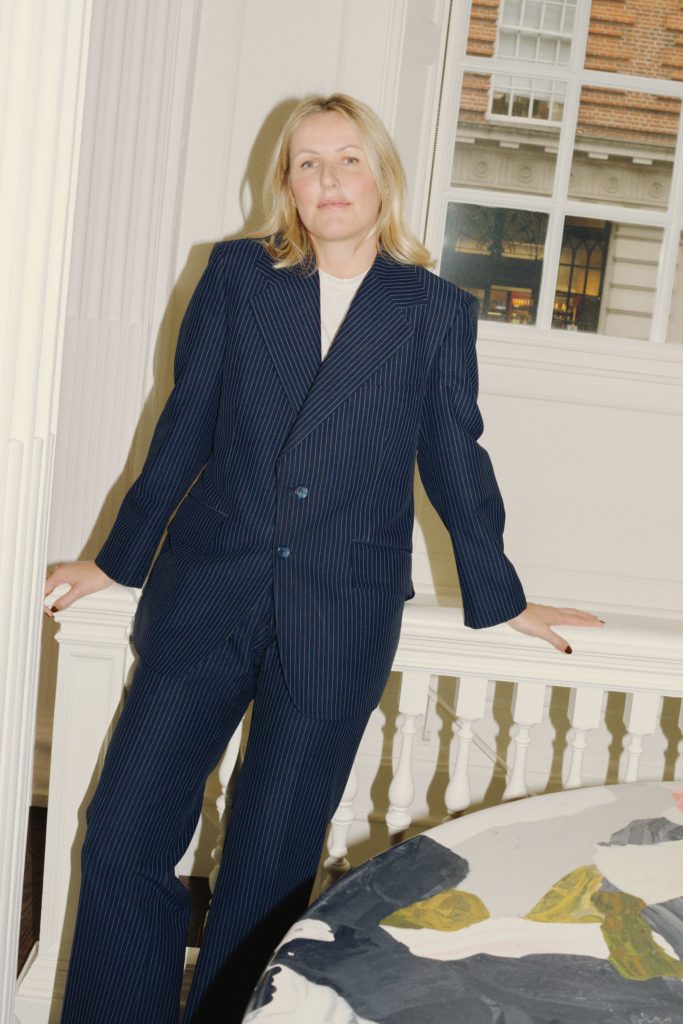Transforming the British Fashion Industry: British Fashion Council A Customer Experience Perspective
The British Fashion Council (BFC) has announced Laura Weir as its new CEO, marking a transformative moment for the organization. With her appointment, the BFC aims to reshape its engagement with customers, stakeholders, and the broader fashion ecosystem. This leadership transition is critical for addressing pressing industry challenges while elevating customer-centricity at every level.
British Fashion Council: The Role of Leadership in Shaping Customer Experience
Laura Weir’s diverse background underscores the significance of leadership grounded in creativity, strategy, and customer engagement. Beginning as a fashion journalist, Weir built a career by understanding and communicating the intricacies of the fashion industry. Her editorial achievements at ES Magazine, including powerful covers reflecting societal resilience, demonstrated her ability to connect with audiences emotionally. These skills are directly transferable to leading a customer-focused organization like the BFC.
Moreover, Weir’s tenure at Selfridges allowed her to oversee creative, marketing, and communications teams. This experience highlights her capacity to align organizational goals with customer needs, ensuring consistent and impactful messaging. Transitioning to the BFC, Weir’s leadership will likely prioritize fostering deeper relationships with designers, consumers, and stakeholders.
British Fashion Council: Championing Inclusivity and Representation in Fashion
The fashion industry has long grappled with issues of diversity and inclusion, both internally and externally. Weir’s commitment to representation aligns with the growing expectations of consumers who demand brands reflect their values. By prioritizing inclusivity, the BFC can enhance its appeal across demographics and geographies, ultimately creating a more equitable and relatable industry.
For example, the BFC could collaborate with emerging designers from underrepresented communities, providing them with a global platform. This approach not only diversifies the talent pool but also ensures that the fashion industry resonates with a broader customer base.
Addressing Industry Challenges to Build Customer Trust
The British fashion industry faces significant challenges, including the lingering effects of Brexit, the pandemic, and the collapse of major retailers like Matches. These issues have reshaped consumer behavior, emphasizing the importance of resilience, transparency, and sustainability. Weir’s vision includes tackling these challenges head-on, ensuring the BFC maintains its relevance and strengthens customer trust.
By forging partnerships with government bodies and industry leaders, the BFC can advocate for policies that support sustainable practices. Additionally, initiatives to reduce environmental impact, such as promoting circular fashion and ethical sourcing, can attract environmentally conscious customers. This focus on sustainability positions the BFC as a leader in aligning industry practices with customer values.
Investing in Emerging Talent for a Unique Customer Experience
Supporting emerging designers is crucial for maintaining the UK’s reputation as a hub of creativity and innovation. Weir’s plans to strengthen the pipeline of British talent ensure that customers experience fresh, inspiring designs that reflect the zeitgeist. The BFC could enhance this initiative by creating mentorship programs, funding opportunities, and international showcases for new designers.
Furthermore, investing in talent not only benefits designers but also enriches the customer experience. By offering unique and innovative products, the BFC ensures that consumers remain engaged and loyal to British fashion.
Expanding Global Reach Through Strategic Partnerships
Weir’s goal of enhancing the BFC’s international presence underscores the importance of reaching global audiences. Building partnerships with international brands, media outlets, and influencers can amplify the BFC’s message and attract a broader customer base. Additionally, leveraging digital platforms can help the BFC showcase British fashion globally while offering personalized experiences to customers.
For example, virtual fashion shows, immersive online shopping experiences, and collaborations with international designers can create excitement and drive engagement. These initiatives demonstrate the BFC’s commitment to innovation while meeting the needs of modern, tech-savvy consumers.
Redefining the Customer Journey Through Creativity and Culture
Weir’s emphasis on culture and creativity highlights the role of storytelling in shaping customer experiences. Fashion is not just about clothing; it’s about narratives, emotions, and connections. The BFC can leverage this by curating events, campaigns, and content that resonate with customers on a deeper level.
For instance, themed fashion weeks that celebrate cultural heritage or address social issues can engage customers beyond the runway. By creating meaningful connections, the BFC fosters a loyal and passionate customer base that values the organization’s impact on society.

Conclusion: British Fashion Council A Customer-Centric Vision for the Future
Laura Weir’s appointment as BFC CEO signifies a renewed focus on customer-centricity in the British fashion industry. Her leadership promises to address industry challenges, champion inclusivity, and foster innovation, ensuring that the BFC remains a global leader in fashion.
By prioritizing creativity, culture, and sustainability, the BFC can create experiences that resonate with diverse audiences, both locally and internationally. As the industry navigates a rapidly changing landscape, a customer-focused approach will be key to securing its relevance and success.

